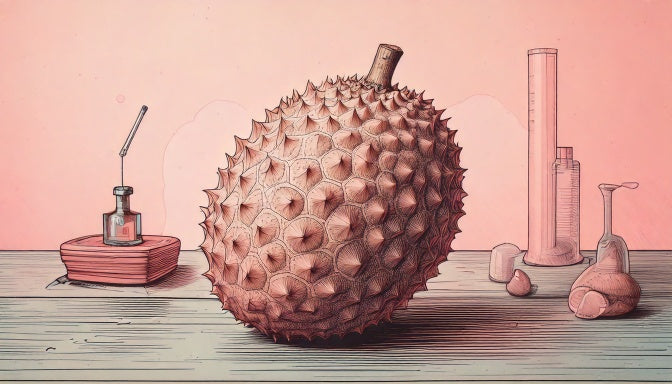Emerging research reveals that the secret to a healthier mind might actually start in the gut. The gut-brain connection is not just a buzzword - it represents a complex, bidirectional communication network linking our digestive tract with our brain.
This blog explores what the gut-brain connection is, how it impacts mental health, the cooperative and independent roles these systems play, the scientific evidence underpinning these interactions, and practical treatment and support options to help you nurture both your gut and your mind.
What Is the Gut-Brain Connection?
The gut-brain connection describes a sophisticated communication system that links the central nervous system (CNS) with the gastrointestinal (GI) tract, influencing nearly every aspect of our health. This network employs multiple channels - neural, hormonal, immune, and metabolic - to ensure that what happens in your gut can significantly affect your brain and vice versa.

Neural Pathways
At the heart of this connection lies the vagus nerve, which acts as a superhighway transmitting signals between the brain and the gut. This nerve ensures that messages about your digestive state and nutrient absorption reach your brain quickly, playing a crucial role in regulating stress responses and mood.
Hormonal and Immune Communication
Beyond the neural link, your gut releases hormones and cytokines that travel through the bloodstream to influence brain function. These chemical messengers help regulate processes such as inflammation and stress response, further bridging the gap between digestive and mental health.
Role of Gut Microbiota
The gut is home to trillions of microorganisms - bacteria, viruses, and fungi - that collectively form the gut microbiota. These microbes produce neuroactive compounds like serotonin and dopamine (with over 90% of serotonin produced in the gut), directly impacting mood, cognition, and overall brain function.
Impact on Mental Health
The state of your gut plays a significant role in shaping your mental well-being. A balanced gut microbiome supports efficient digestion, a strong immune system, and a stable mood, whereas an imbalanced gut - known as dysbiosis - has been linked to various mental health issues.

Depression and Anxiety
Research indicates that disruptions in the gut microbiota are associated with higher incidences of depression and anxiety. Animal studies have demonstrated that transferring gut bacteria from depressed individuals to rodents can trigger depression-like behaviours, suggesting a direct influence on mood regulation. Maintaining a diverse and balanced microbial community may therefore be key to managing these conditions.
Cognitive Function and Neurodegeneration
Emerging evidence suggests that gut health may also affect cognitive processes and could be involved in the development of neurodegenerative diseases such as Alzheimer’s and Parkinson’s. Changes in the gut microbiome can lead to increased inflammation and altered metabolism, which may impair brain function over time.
Stress Response
The gut contributes to the regulation of the stress hormone cortisol via the hypothalamic-pituitary-adrenal (HPA) axis. A healthy gut can help modulate your body’s response to stress, making it easier to cope with everyday challenges.
Synergistic and Independent Functions of the Gut and Brain
While the gut and brain are closely interconnected, they also operate independently in ways that uniquely influence our health.
Synergistic Communication
When working together, the gut and brain coordinate seamlessly to regulate digestion, mood, and stress. Neural pathways such as the vagus nerve allow for rapid communication, ensuring that changes in digestive processes can quickly affect emotional states. Shared chemical messengers like serotonin and GABA help synchronize activities that maintain both physical and mental balance.
Independent Functions
Despite their interconnection, each system maintains independent roles. The gut can autonomously manage local immune responses and nutrient absorption, while the brain can independently govern complex cognitive functions. This duality means that interventions may target either the gut, the brain, or ideally both, for a comprehensive approach to health.
Scientific Evidence and Study References
A growing body of scientific research underlines the importance of the gut-brain axis. Numerous animal studies have demonstrated that alterations in the gut microbiota can lead to significant changes in behaviour, mood, and cognitive function.
For instance, mice receiving gut bacteria from depressed individuals have shown depression-like behaviours, highlighting a potential causal relationship. Additionally, human research from institutions such as Johns Hopkins Medicine and Harvard Health has linked gastrointestinal issues with increased rates of anxiety, depression, and even cognitive decline.
Advanced techniques in neuroimaging and microbial analysis continue to reveal the underlying mechanisms of this interaction, solidifying the idea that a balanced gut is essential for a balanced mind.
Treatment and Support Options
With mounting evidence supporting the gut-brain connection, a variety of strategies have emerged to bolster both gut and mental health.
Dietary Interventions
Adopting a gut-friendly diet is one of the most accessible ways to support this connection. Focus on consuming fibre-rich foods, such as whole grains, fruits, and vegetables, along with naturally fermented foods like sauerkraut, kefir, and kimchi.
Diets such as the Mediterranean diet, known for its anti-inflammatory benefits, have been linked to reduced depression risk. These nutritional choices help nourish your gut microbiome, promoting a balanced ecosystem that benefits both digestion and mental health.
Probiotics and Prebiotics
Probiotics, whether in supplement form or through fermented foods, can help replenish beneficial bacteria in your gut. Prebiotics - found in foods like garlic, onions, and bananas - act as nourishment for these microbes, enhancing their growth and activity. Although more research is needed to determine the optimal strains and dosages, many individuals experience improvements in mood and digestion with regular use of these supplements.
Lifestyle Interventions
Addressing the psychological aspect of the gut-brain axis is equally vital. Stress management techniques, such as mindfulness meditation, cognitive behavioural therapy (CBT), and even gut-directed hypnotherapy, can help regulate the stress response and support gut function. Regular exercise and adequate sleep further contribute to maintaining a healthy balance between your gut and brain.
Conclusion
The gut-brain connection is a dynamic and multifaceted relationship that influences our physical, emotional, and cognitive health. From the extensive neural networks and chemical messengers linking our gut to our brain, to the independent roles each system plays, nurturing this connection offers promising pathways to improved mental well-being.
By embracing a holistic approach that includes balanced nutrition, probiotic support, and effective stress management, you can take meaningful steps toward enhancing both your gut and mental health.
The science is still evolving, but the evidence is clear - a healthy gut is a cornerstone of a healthy mind. Make small, positive changes today, and let your gut and brain work in harmony for a happier, healthier future.
References
Appleton J. The Gut-Brain Axis: Influence of Microbiota on Mood and Mental Health. Integr Med (Encinitas). 2018;17(4):28-32.
The Brain-Gut Connection - Hopkinsmedicine
The Gut-Brain Connection - Health Harvard




Leave a comment
All comments are moderated before being published.
This site is protected by hCaptcha and the hCaptcha Privacy Policy and Terms of Service apply.